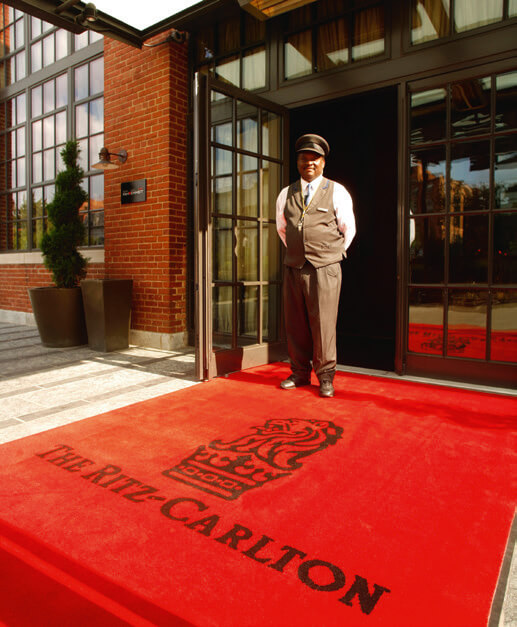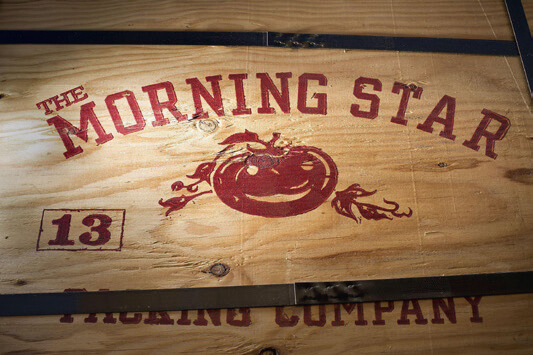Mind the gap
Last year, WPP’s Sir Martin Sorrell took home £43m in remuneration. Meanwhile, the average salary for UK marketers, as reported in this month’s CIM/Marketing Salary Survey, is £39,525.
Does that seem right to you? After all, without you and fellow marketers like you, there would be no thriving, ambitious brands for Sorrell’s agencies to work on. There would be no budgets, no projects – no profits. In the end, you and he are both marketing professionals, albeit on different sides of the buyer-supplier fence. Is it right that he should earn 1,088 times more than you?
Even if you step outside the rarefied and overpaid world of marketing-services suppliers, the comparisons still have the power to sting. What does your own CEO earn? The UK average is £4.96m. If you’re on an average marketer’s wage, that is as much as you would earn in 125 years of full-time work. Can that be right? Can it? It’s enough to make you vote for Jeremy Corbyn.
Bottle that feeling. Hold it. Retain that sense of envy and injustice. Because it will be vital when you reverse your telescope and look in the other direction at people doing jobs every bit as hard as yours, every bit as vital, every bit as brand-sensitive – for a whole lot less.
It is an irony that the employees who have the maximum influence on consumers are often people on the minimum wage. They might be changing sheets for a hotel brand, stacking shelves in a supermarket, cleaning the changing rooms at a swanky gym or starting out in the call centre.
Your brand in their hands. If there is a gap between all those lovely descriptors in your brand codification – vibrant, friendly, helpful – and the reality at the point of human contact, your consumers are going to feel it, remember it and act on it.
Oxford University’s Richard Pascale likes to describe employees as “volunteers who decide each day whether or not to contribute the extra ounce of discretionary energy that will differentiate the enterprise from its rivals”. The point is that they are no longer at anyone’s command and control – if they ever were.
This is why, of all the tasks in the marketer’s repertoire, internal brand engagement is the toughest. You want them to ‘live the brand’; they wouldn’t mind a living wage. Where do you start?
 You start in exactly the same place as you would in your efforts to engage consumers: by understanding more about the people you wish to persuade. It’s amazing how often this vital step is forgotten in the fervour of marketing teams to get straight to their exciting new brand theme; agencies are briefed, mood films are edited, brand books are slaved-over, venues are booked – the work goes into the launch, not the learning. It is the equivalent of creating a $10m commercial and airing it all over the planet without ever doing a single consumer interview.
You start in exactly the same place as you would in your efforts to engage consumers: by understanding more about the people you wish to persuade. It’s amazing how often this vital step is forgotten in the fervour of marketing teams to get straight to their exciting new brand theme; agencies are briefed, mood films are edited, brand books are slaved-over, venues are booked – the work goes into the launch, not the learning. It is the equivalent of creating a $10m commercial and airing it all over the planet without ever doing a single consumer interview.
Understanding takes time – yours, and theirs. In my experience, though, people in humdrum roles are usually only too willing to give an extra hour of their day freely to talk – partly because they are so rarely asked, and partly because it is a chance to air gripes.
And there will be gripes – often about small things that rub for too long and become running sores. If you can work with HR to go beyond listening, and actually do something about one or more of them, you will massively increase the prospects of getting people to focus on their role in the success of the brand.
Alongside understanding comes involvement: don’t just spring the new theme on people, get them to have an influence on its final shape. Share early thoughts and ask what they might do differently. You won’t always get great ideas – although sometimes people will surprise you with just that – but you will always imbue employees with a sense of personal ownership: their brand in their hands.
It would be nice if the razzmatazz of the internal launch was the end of things, but, inevitably, the work of engagement continues long after. People forget, and new people join, so constant reminders are needed.
And people need to be rewarded for getting it right. As a marketer you can no more hike everyone’s wages than you can cut Sorrell’s package down to size, but you could use part of your budget for an imaginative incentive scheme, or use your influence to curb unfair corporate practices like taking a slice of employee tips.
The power of non-financial rewards is not to be underestimated, either. A well-timed “thank-you”, a personal recognition that someone with a hard day has really worked at getting it right for the brand, can make an enormous difference. Money isn’t everything.
Too often there is a corrosive sense of ‘them and us’ between managers and the managed. Here’s to some of the businesses that have tried imaginative ways to close that gap.

Ritz-Carlton The hotel brand recognises the significance of terminology and self-respect for its 24,000 service staff. “We are ladies and gentlemen serving ladies and gentlemen” is the theme for an employee programme that has become a famous business case. Imaginative incentives reward the right kind of service – so chambermaids, who might be earning 0.1% of the salary of the CEO whose strategy they are implementing, can win a luxury weekend away for noting guest preferences as they service the rooms.

Gravity Payments Dan Price, founder and CEO of the Seattle-based credit-card payment-processing company, cut his own package by 90% so that he could pay everyone on his 120-strong workforce the same wage – set at a generous $70,000. He received praise and opprobrium in equal measure. Thousands of people tried to join, but some senior members left, irked that their experience was not appropriately valued – and some clients walked, too, believing that the scheme “smacked of socialism”.

Morning Star Company Corporate structures don’t come much flatter than this: no managers, no titles, no promotions, no directives from above. The business is the world’s biggest processor of tomatoes, founded in 1970 by Chris Rufer, a visionary who extols the virtues of ‘self-management’. Here, everyone is a ‘colleague’. Each writes a ‘personal commercial mission’ to describe their contribution to the common goals, and enjoys the autonomy to buy equipment and hire people, after consultation with others. The success of the California-based firm has inspired other ‘bossless businesses’ in the US and Europe.
